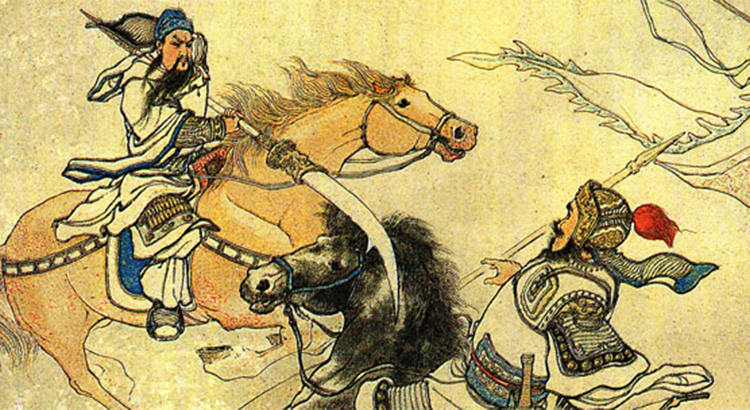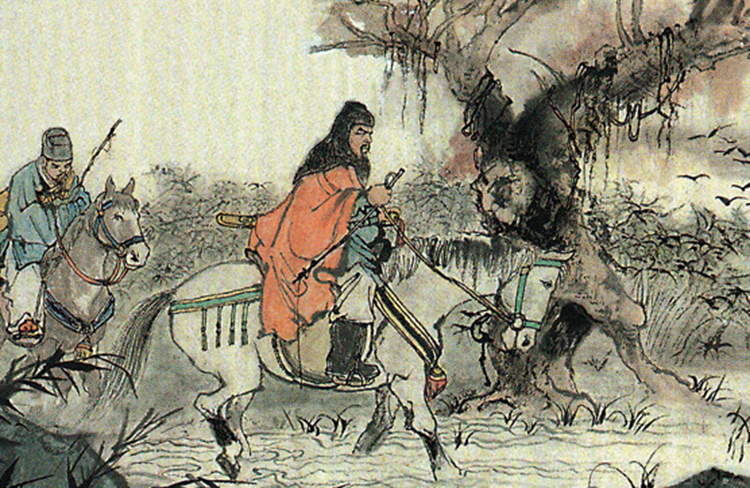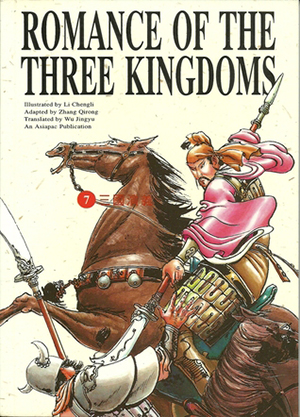Written by: Yao Dan
Posted on: June 09, 2016 | 
'Romance of the Three Kingdoms'
This belief meets the common Chinese historical philosophy: situations cycle every five hundred years. The period of the Three Kingdoms is a chaotic era in which heroes and capable people of various kinds rose and vied for a position. Intense wisdom competition and power struggles, employing a strategy or defeating one, makes the novel’s major fascination. The strategies described are so many, even the same one might vary or be adopted in a different way for different targets: beauty trap, self-torture scheme, interlaced stratagems, turn the enemy’s agent against him, fight by fire or water, so on and so forth.

Romance of the Three Kingdoms has three matchless characters: Zhuge Liang, the epitome of wisdom, Guan Yu, symbol of loyalty and righteousness, and Cao Cao, synonymous with a treacherous pretender. By the time Luo Guanzhong wrote this novel, in the late Yuan or early Ming dynasty, popular judgment from the majority of Chinese people about the characters during the Three Kingdoms Period had set, and storytellers during the Song Dynasty exhibited a clear liking for Liu Bei and a disliking for Cao Cao. Much earlier, the Tang Dynasty poet Du Fu wrote the following verse to express his esteem to Zhuge Liang:
Being visited twice and then often conferred on affairs of statecraft / in installing and prompting up two reigns as their adamantine support / You in person the state′s corps dispatch lead, but died before triumph could be won. / It doth make all our heroes mourn your noble cause to tears.

As an image in keeping with Confucianism, Zhuge Liang really accomplished doctrines like “in a humble position, keep virtuous; in a prominent position, mind the suffering of the broad masses.”He maintained an easy state of mind when living a secluded life, when in a high position,”bending his back to a task until his death.” Meanwhile, Guan Yu was another kind but equally admirable. He was righteous, loyal, and possessed invincible martial prowess. Many stories about him have been told with much relish throughout history, like “Guan Yu rides on a solitary journey”, “Guan Yu, single handed, goes for a feast set up as a trap”and“having a scraped-bone surgery.” Unlike unscrupulous heroes in other popular stories who may visit brothels, abuse alcohol and pick up fistfights, Guan Yu is an impeccable character. Both Zhuge Liang and Guan Yu, as described in the novel, have admirable wisdom and prowess, yet are free of any defects of ordinary people. This preference is partially ascribable to the author′s belief that Liu Bei′s side is the orthodox branch from the Han royal family. By elevating and magnifying the virtues of Liu Bei′s side, the author presented us the image of a military counselor with wonderful foresight, an image firmly established in the whole nation. Meanwhile, Cao Cao was put down to be an evil minister, a character far from what he really was in history.

As the Three-Kingdom Period really existed in Chinese history, and the stories about the Three Kingdoms, Romance of the Three Kingdoms, just like Outlaws of the Marsh and Journey to the West, are well known to almost every family in China. Taking the novel as a history book, wanting to learn something out of it for present application, readers often take the characters in the novel as real ones in history. At the novel′s tremendous popularity, some critics warned that the novel was“easily misleading.” Zhuge Liang′s stories, for example, had a historical basis, yet the novel described him as witty and foresighted to the point of a supernatural being. One of his deeds was to anger Zhou Yu, the military governor of the State of Wu, three times, making the latter die from vomiting blood. In history, Zhou Yu did not die out of jealousy of Zhuge Liang′s exploits. It is the author who added the embellishment when describing their wisdom pitted against each other.
Romance of the Three Kingdoms is a story that took place in an era when heroes rose to compete with one another for an upper hand and in a chaotic way. It is set in a panoramic background, its story told in a highly spirited way, and through the characterization of a justified side, publicizes Confucian doctrines about politics and human behavior, the author′s yearning for a rule of benevolence, mutual assistance on an equal basis, honor and and trust, as well as other traditional virtues. By taking sides with Liu Bei and putting down Cao Cao, the author was actually denouncing, albiet in a round-about way, the Yuan-dynasty ruling. However, even the hero has no power to retrieve what he has lost. In the end, the loyal Zhuge Liang, an epitome of Confucian spirit, dies before a triumph is won.
You may also like: